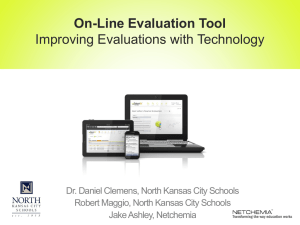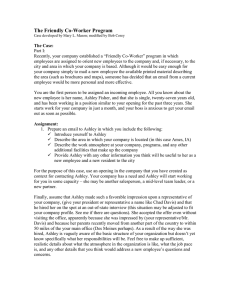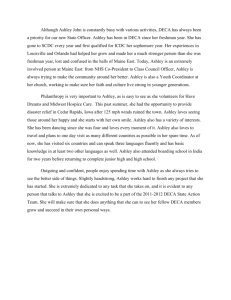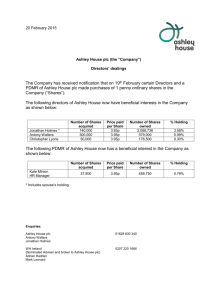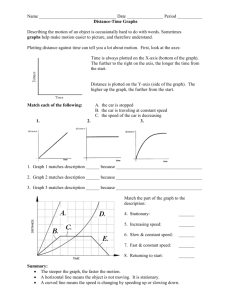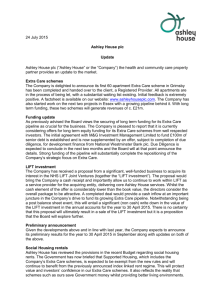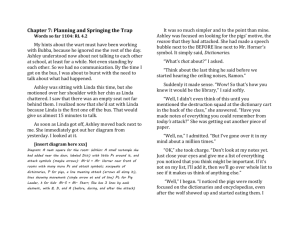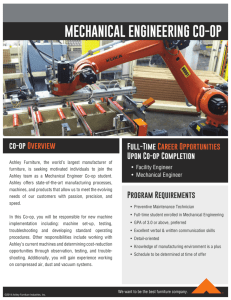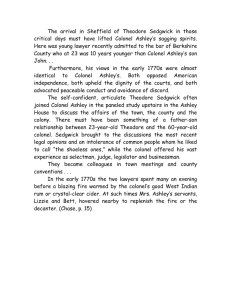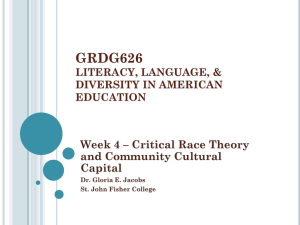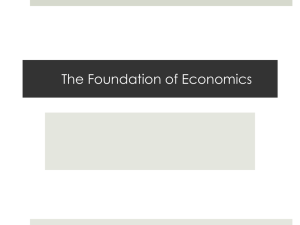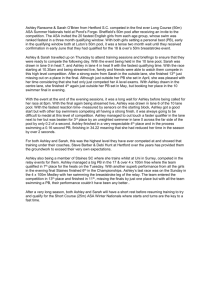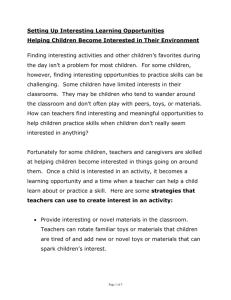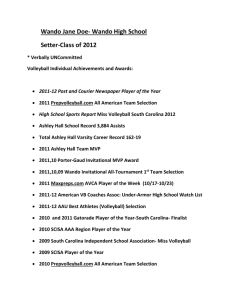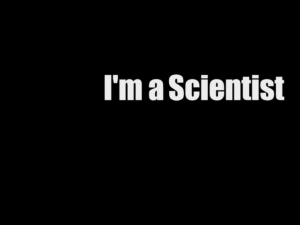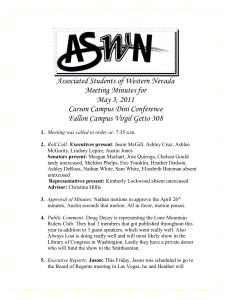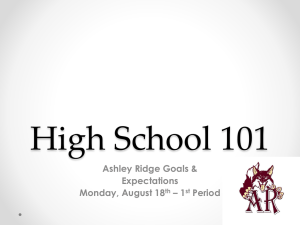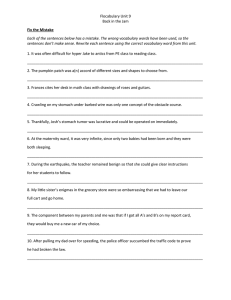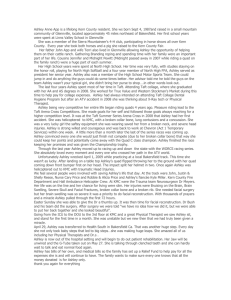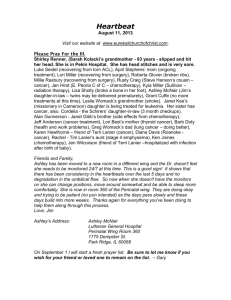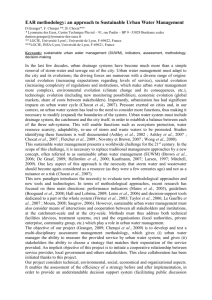Interview With Ashley Driscoll
advertisement
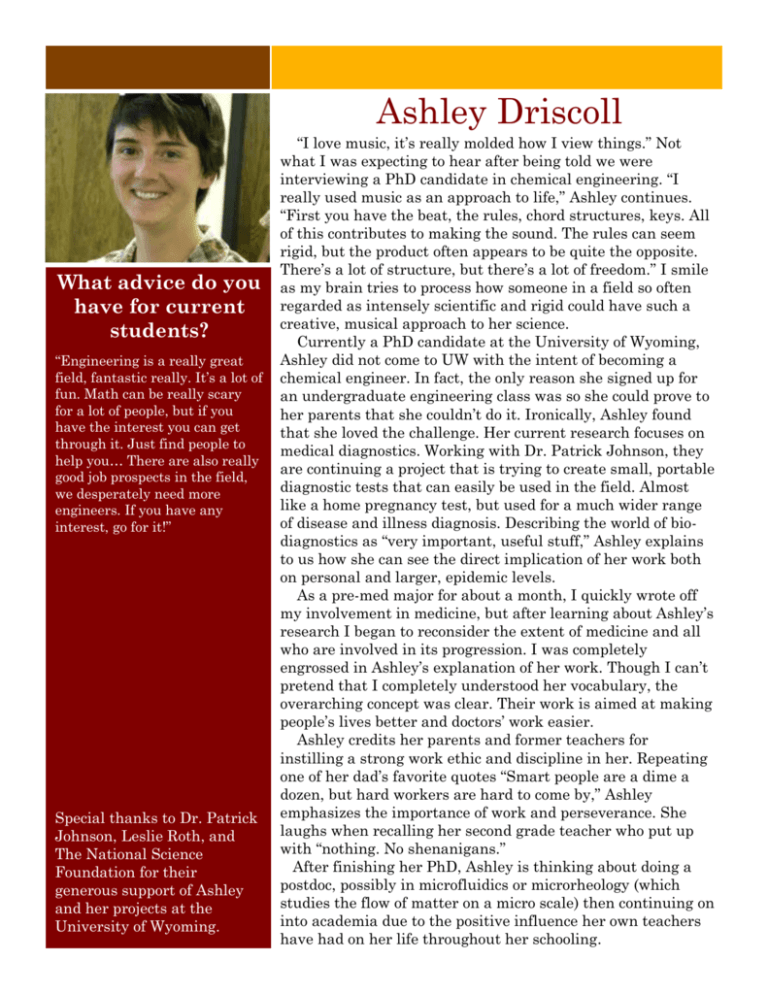
Ashley Driscoll What advice do you have for current students? “Engineering is a really great field, fantastic really. It’s a lot of fun. Math can be really scary for a lot of people, but if you have the interest you can get through it. Just find people to help you… There are also really good job prospects in the field, we desperately need more engineers. If you have any interest, go for it!” Special thanks to Dr. Patrick Johnson, Leslie Roth, and The National Science Foundation for their generous support of Ashley and her projects at the University of Wyoming. “I love music, it’s really molded how I view things.” Not what I was expecting to hear after being told we were interviewing a PhD candidate in chemical engineering. “I really used music as an approach to life,” Ashley continues. “First you have the beat, the rules, chord structures, keys. All of this contributes to making the sound. The rules can seem rigid, but the product often appears to be quite the opposite. There’s a lot of structure, but there’s a lot of freedom.” I smile as my brain tries to process how someone in a field so often regarded as intensely scientific and rigid could have such a creative, musical approach to her science. Currently a PhD candidate at the University of Wyoming, Ashley did not come to UW with the intent of becoming a chemical engineer. In fact, the only reason she signed up for an undergraduate engineering class was so she could prove to her parents that she couldn’t do it. Ironically, Ashley found that she loved the challenge. Her current research focuses on medical diagnostics. Working with Dr. Patrick Johnson, they are continuing a project that is trying to create small, portable diagnostic tests that can easily be used in the field. Almost like a home pregnancy test, but used for a much wider range of disease and illness diagnosis. Describing the world of biodiagnostics as “very important, useful stuff,” Ashley explains to us how she can see the direct implication of her work both on personal and larger, epidemic levels. As a pre-med major for about a month, I quickly wrote off my involvement in medicine, but after learning about Ashley’s research I began to reconsider the extent of medicine and all who are involved in its progression. I was completely engrossed in Ashley’s explanation of her work. Though I can’t pretend that I completely understood her vocabulary, the overarching concept was clear. Their work is aimed at making people’s lives better and doctors’ work easier. Ashley credits her parents and former teachers for instilling a strong work ethic and discipline in her. Repeating one of her dad’s favorite quotes “Smart people are a dime a dozen, but hard workers are hard to come by,” Ashley emphasizes the importance of work and perseverance. She laughs when recalling her second grade teacher who put up with “nothing. No shenanigans.” After finishing her PhD, Ashley is thinking about doing a postdoc, possibly in microfluidics or microrheology (which studies the flow of matter on a micro scale) then continuing on into academia due to the positive influence her own teachers have had on her life throughout her schooling. 2

